Boiler vs Water Heater: Differences, Pros and Cons
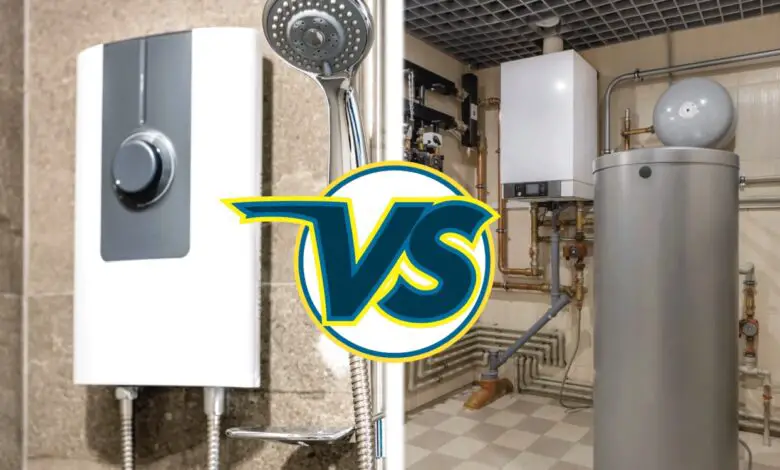
In this blog post, we’ll compare boilers and water heaters to help you decide which option is right for you.
We’ll also discuss the various pros and cons of each option so you can make an educated decision.
Let’s get started!
Want to learn how much it costs to replace a boiler in Arizona? Feel free to visit this website after learning about the differences between boilers and water heaters.
What is a boiler and what is a water heater?
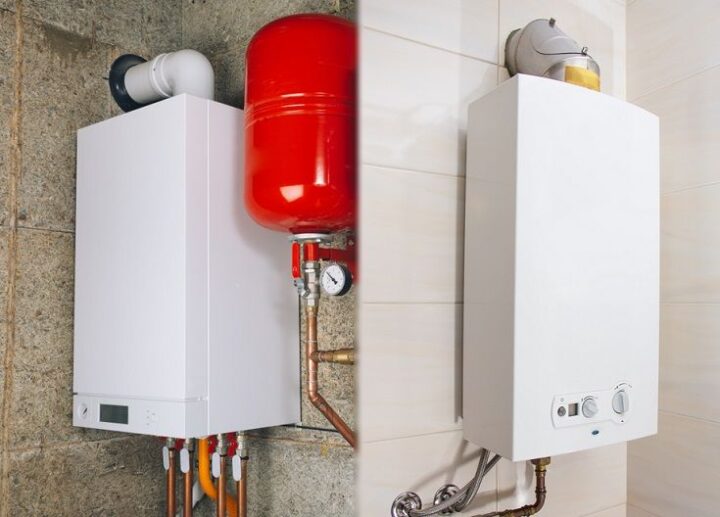
Have you ever wondered what makes water heaters and boilers different from one another? Their differences are quite clear once you understand what each unit is and how they work.
Here are some of the differences between water heaters and boilers:
What is a boiler?
A boiler is a pressurized vessel that is used to heat water or produce steam. The hot water or steam is then circulated through a system of pipes to heat the home or provide hot water. Boilers can be fueled by natural gas, oil, propane, or electricity. When selecting a boiler, it is important to choose one that is the correct size for the home and that has the features desired.
For example, some boilers come with built-in timers that allow the user to set when the boiler will turn on and off. Other features to look for include a low-water cutoff switch and a pressure relief valve. Installation of a boiler can be complex, so it is important to hire a qualified professional to ensure that it is installed properly.
Types of Boilers
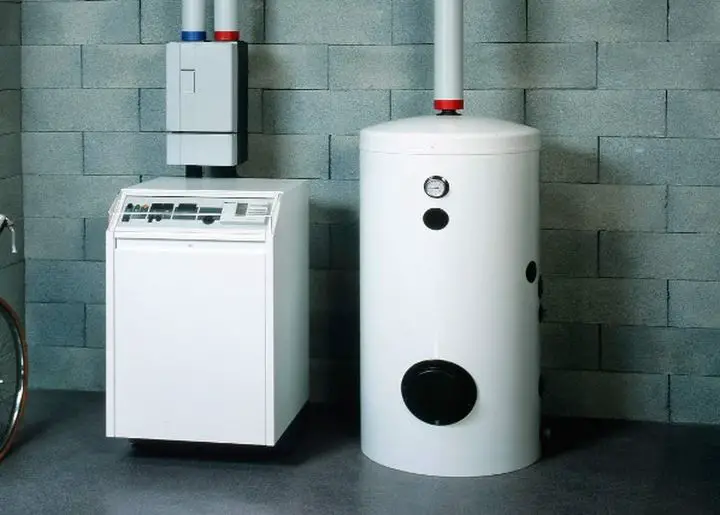
The two most common types of boilers used today include:
-Conventional or conventional-combination boilers: These boilers use natural gas, oil or electricity as a fuel source to provide heat for hot water or radiators. The primary benefit is their efficiency: Conventional models reach up to 90 percent efficiency compared to 75 percent for traditional models. This makes it easier on your wallet – you won’t have to pay as much for your heating costs in the winter!
-Condensing boilers: These high-efficiency units extract more energy from the combustion process than conventional models so they use less fuel by recovering much of the unused heat that would otherwise escape up the flue. Condensing boilers operate at up to 97 percent efficiency levels compared to 80-90 percent achieved by most conventional systems. This can yield considerable savings when it comes to home heating bills!
What is a water heater?
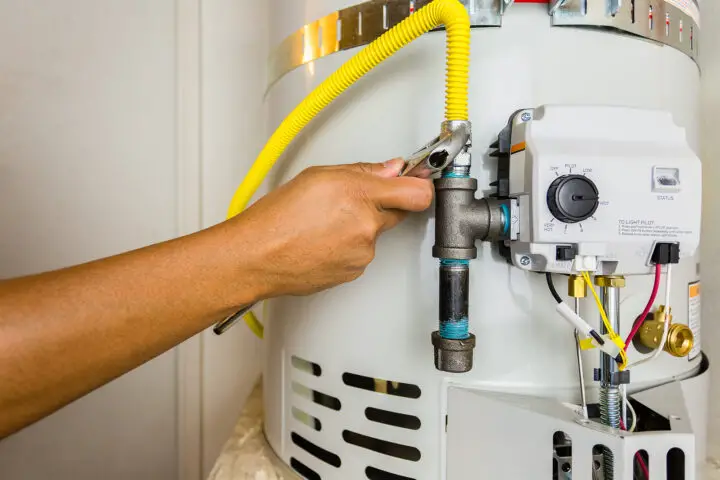
A water heater unit is a device that uses heat to raise the temperature of water. Storage water heaters are extremely common in North America; these units feature an insulated tank that stores hot water until it is needed. When you open the unit’s hot water tap, cold water flows into the tank, displacing the hot water and causing it to flow out through the pipe to the tap.
Cost
For most homes, the cost of a boiler or water heater can drastically affect the monthly energy bill. Boilers are generally more expensive than water heaters as they require complex water and fuel connections, as well as installation labor that can run anywhere from $2,000 to $8,000. On the other hand, tankless water heaters usually range between $700 and $3,000 plus the cost of installation labor depending on size and type.
When it comes to running costs, both boilers and tankless water heaters offer low-cost operation. Boilers run on either natural gas or oil fuel, which is less expensive than electric power. As for tankless water heaters, their small form factor requires less energy and consequently translates into lower operating costs.
The pros and cons of boilers vs water heaters
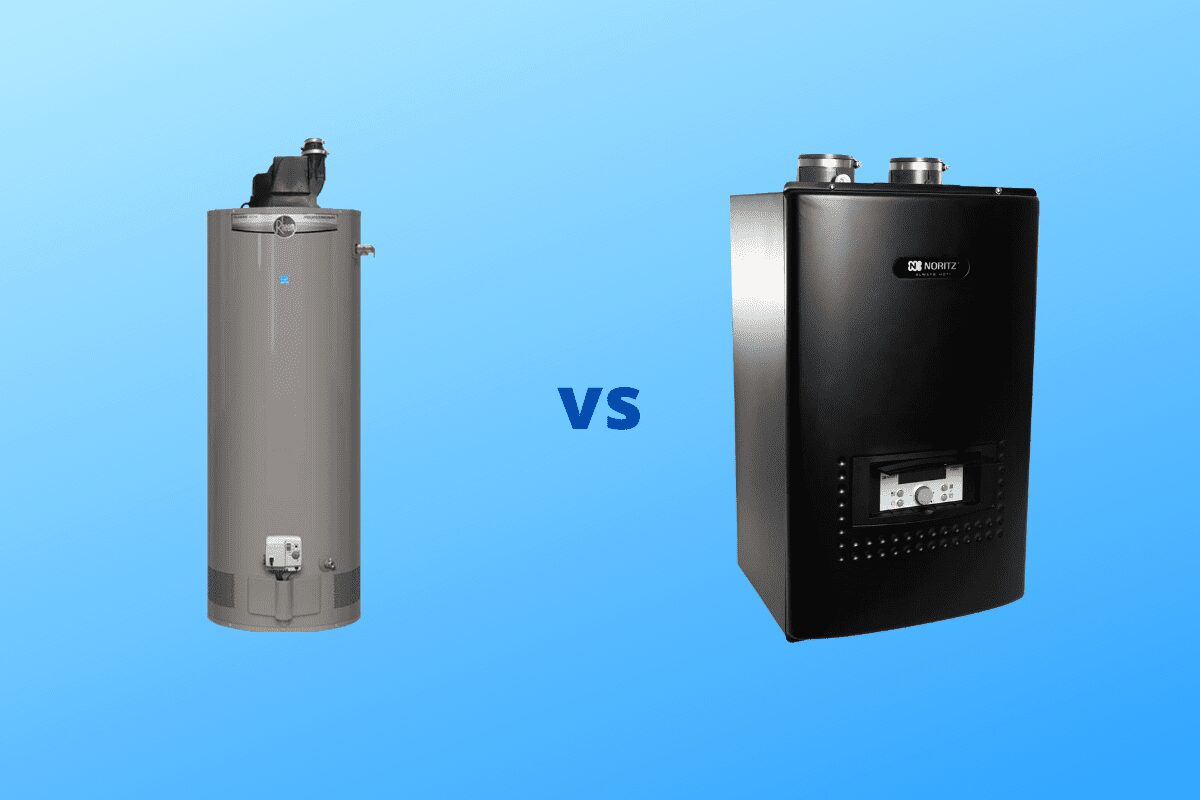
Here are some of the pros and cons of boilers and water heaters that you should kep in mind during the comparison process:
Pros and cons of boilers
Some of the pros of boilers include:
- More energy efficient than water heaters
- Can provide hot water and heat at the same time
- Lasts longer than water heaters
Some of the cons of boilers include:
- More expensive than water heaters
- Requires regular maintenance
- Takes up more space than water heaters
Pros and cons of water heaters
Some of the pros of water heaters include:
- Less expensive than boilers
- Requires less maintenance than boilers
- Takes up less space than boilers
Some of the cons of water heaters include:
- Less energy efficient than boilers
- Can only provide hot water, not heat
- Does not last as long as boilers
Which one is right for you?
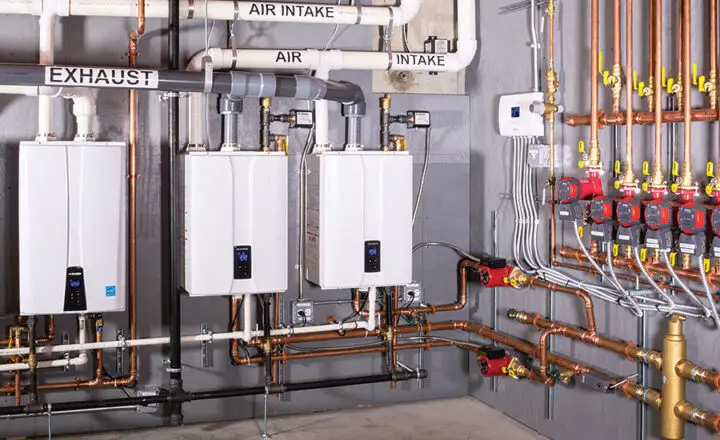
So, which option is right for you?
The answer depends on several individualized factors, including the overall size of your living space, the climate you live in, and your personal preferences. Here is a closer look at each option to help you make the optimal decision for your needs.
Boilers are typically more expensive than water heaters, but they offer several advantages.
First, boilers can provide hot water on demand, meaning you don’t need to wait for the water to warm up before using it. This can be quite a time saver, especially if you have a growing family or like to entertain guests.
Additionally, boilers tend to be more energy-efficient than water heaters, so you can save money on your utility bills in the long run. However, boilers require regular maintenance and must be professionally installed, so they may not be the ideal option if you’re looking for a simple and low-maintenance water heater.
Water heaters, on the other hand, are less expensive upfront and are generally easier to install than boilers. While they don’t provide instantaneous hot water, they do typically have a larger tank capacity than boilers, so you won’t have to worry about running out of warm water as quickly.
Water heaters also tend to be more durable than boilers and require less maintenance over time. However, they are less energy-efficient than boilers and may not be able to keep up with the demands of a large family or frequent entertaining.
Conclusion
Both a boiler and water heater have their pros and cons, so it’s important to weigh all of the important factors that are at play before making a decision. If you need any assistance in deciding which appliance is best for your home, please contact a professional plumbing service.
